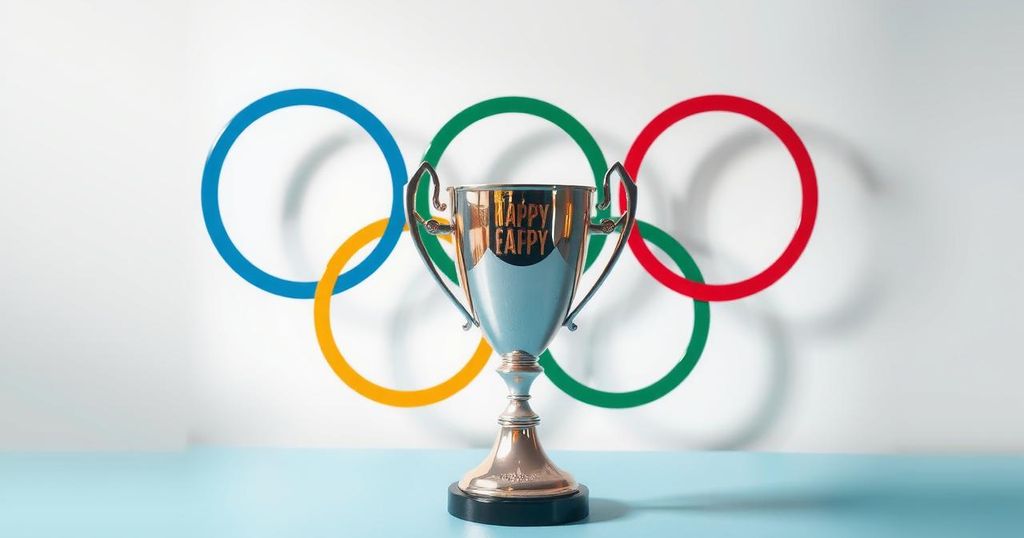Politics
” BACH, AFRICA, ATHENS, COMMITTEE, COSTA NAVARINO, COUBERTIN, COVENTRY, EUROPE, GERMANY, GOVERNANCE, GOVERNMENT, GREECE, INTERNATIONAL, INTERNATIONAL OLYMPIC COMMITTEE, IOC, IOCMEDIA, JOHAN ELIASCH, LEADERSHIP, NORTH AMERICA, OLYMPIA, PIC, SEBASTIAN COE, SPAIN, SWIMMING, U. S, UNITED STATES, ZIMBABWE
Isaac Bennett
0 Comments
Kirsty Coventry Elected First Female President of the International Olympic Committee
Kirsty Coventry of Zimbabwe has been elected as the first female and 10th president of the International Olympic Committee, marking a historic moment. Coventry will serve an eight-year, renewable term, becoming the first African to hold the position. She addressed the IOC members, reflecting on her journey and expressing gratitude. In her term, the upcoming Olympic Games will continue in various global locations, showcasing her commitment to the Olympic Movement.
Kirsty Coventry of Zimbabwe has made history by being elected as the first female president of the International Olympic Committee (IOC) and the 10th overall since its establishment in 1894. Members of the IOC cast their votes for her on Thursday, granting her an eight-year term that can potentially be renewed for an additional four years. Coventry, a celebrated seven-time Olympic medalist in swimming, will also become the first individual from Africa to hold this prestigious position when her term officially begins on June 24.
Coventry addressed the IOC members following the announcement made by outgoing President Thomas Bach, expressing her astonishment at the moment. “This is an extraordinary moment,” she reflected, recalling her childhood aspirations. At the age of 41, she is set to become the second-youngest IOC President, after Pierre de Coubertin, who commenced his role when he was just 33 years old in 1896 during the inaugural modern Olympics in Athens, Greece.
The voting took place in Costa Navarino, Greece, located approximately 60 miles from Olympia, the historic site of the Ancient Olympics. Coventry secured a decisive 49 votes out of 97, surpassing her closest competitor, Juan Antonio Samaranch from Spain, who garnered 28 votes. No subsequent rounds of voting were necessary as she achieved a majority in the first round. Among the other candidates were Prince Feisal Al Hussein, Sebastian Coe, Johan Eliasch, David Lappartient, and Morinari Watanabe.
Coventry’s election marks a significant moment as she succeeds Thomas Bach, who fulfilled the maximum allowed term of 12 years, leading the IOC through challenging times, including the COVID-19 pandemic. Following his tenure, Bach was awarded the title of IOC Honorary President for Life. In a heartfelt speech, he expressed gratitude for the opportunity to contribute to sports and the Olympic Movement, emphasizing the joy he found in his role.
During Coventry’s forthcoming term, the upcoming Olympic Games will be hosted in Milan Cortina, Italy (2026), Los Angeles (2028), the French Alps (2030), and Brisbane, Australia (2032). Born in Harare, Zimbabwe, Coventry made her Olympic debut in 2000 when she was just 17 years old and later attended Auburn University. She won the gold medal in the 200m backstroke at both the 2004 and 2008 Olympics, accumulating a total of seven medals across those events.
Having been an IOC member since 2013, initially joining the athletes’ commission, Coventry retired from competitive swimming after her fifth Olympics in 2016. Notably, she is the first Olympic swimmer to assume the presidency of the IOC. In her acceptance speech to the IOC members, she expressed her gratitude and eagerness to commence her work, stating, “Thank you from the bottom of my heart, and now we’ve got some work together.”
Kirsty Coventry’s election as the first female and African president of the International Olympic Committee highlights a significant milestone in the organization’s history. Her eight-year term promises a new direction for the IOC, especially following the leadership of Thomas Bach during difficult times. Coventry’s extensive experience as an Olympic athlete and an IOC member positions her well for this prestigious role, as she prepares to guide future Olympic events. Furthermore, her emphasis on collaboration sets a hopeful tone for her administration.
Original Source: www.nbcsports.com




Post Comment